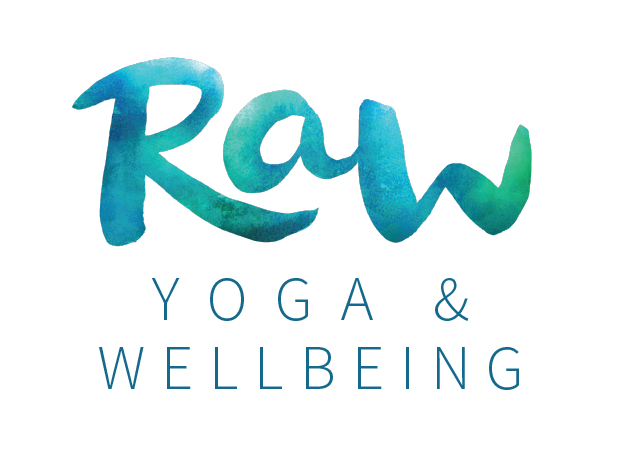Ahimsa - Non-Violence. ‘Gentle Eyes to Reality as it is’
written 29/11/2016
Ahimsa, a concept that on the surface seems relatively simple, NO Violence.
I believe most of us in the yoga world can comfortably say we are non-violent humans (which I might add is awesome!) I have a lot of respect for my friends who are out there fighting for the 'little guy' and doing their best everyday to make a difference, whether it be for animal rights, human equality, or protecting the environment. At times though these battles can be overwhelming and lead to a state of defeat and confusion. While others having this knowledge of Ahimsa can be lead to a false sense of hierarchy, entering them into a 'guru' like state of feeling bigger and more profound than everyone else. Either way the line is thin and for the most part, pretty grey.
As I have started to look at what makes a great yoga teacher, I have been asking myself more and more questions. Trying to unpick this divide that I have seen within teachers and myself. To me it looks like this – the teachers on the side of defeat and overwhelm; and the overinflated self 'guru' teachers. Yet there are teachers who sit right in the centre between both states. This is where I believe the magic happens, a state of deep humility, contentment and integrity.
I started to ponder what happens to humans that send us off either side and how to keep reflecting back to the yoga path to keep us in check, as humble and yet empowered teachers. An example that came to mind made me giggle as it is so obvious, yet when you start out as a teacher you can be relatively unaware of it.
Situation one – 'You have just taught an amazing Yoga class, you were loving it, the students appeared to be having a delightful time, the music was good, the temperature was perfect, you created some magical scent and everything is... dare I say... Perfect! Life feels good, you teach yoga, you feel amazing... class finishes and you move to the entrance to chat and see everyone out. This amazing thing happens.. all these blissed out yogis are floating towards YOU, singing YOUR praises and sharing how amazing YOUR class was, YOU'RE so fantastic, YOU made me feel so great! Wow – 'I love my job', everyone has gone and you lock up and leave with a huge smile on your face.
Here lies our first potential problem - depending on your level of self awareness and 'Santosha' (contentment). It is incredibly easy to ride off the wave that YOU have done this amazing thing by teaching yoga. However, at some point when studying to become a yoga teacher the trainee should understand that they are merely 'the messenger'. The person on the mat is the one doing the work. The yoga itself is what makes them feel amazing (not the teacher).
Certain teachers will always vibe more with certain students, but it is the yoga that is the magic. How a teacher delivers the class will of course play a role in how a student experiences the class. I believe it is important to keep in mind that a big reason a lot of teachers were drawn to yoga was from the experience felt on their own mats and the magic created through self discipline, no matter who the teacher was. External inspiration is one thing, yet the magic comes from an internal discipline. The yoga teacher guides the journey in many ways, yet does not have the power to create the students magic.
Yet all to easily teachers fall into this position of believing they are something else. Statements like; 'awake' or 'higher consciousness' get thrown around and then suddenly the teacher has taken on that 'Guru' complex. You see them around, they will talk all the right words yet something feels a little off centre. It can be hard to put your finger on, classes slowly become filled with lengthy lectures around spiritual concepts, or 'how to be a greater human', 'how to wake up to reality' etc. It can be hard to detect as a student, because yogic philosophy can break down a lot of these ideas, and I have to say, at times I touch on certain topics in my own classes. Yet what is the difference between sharing your love for the yogic traditions, and dictating to your students? How do we know when a teacher is being real and authentic?
How does Ahimsa play a role in balancing this experience for everyone?
Situation two – you have taught a class, right from the get go the class felt terrible, you don't feel grounded, the room is too cold, the students seem agitated and unfocused. You are hungry, tired and watching the clock. The class finally finishes, you fumble over your words to close the class, then sheepishly shuffle to the door to let everyone out. People duck their eyes and sneak out as fast as they can, one student stops to ask you a question about the agitated hip they are experiencing, you have absolutely no idea what is wrong – so you try to find a smile and reassure them to keep going with their practice and 'everything will be fine'. You lock up, leave, looking for a hole to crawl into – feeling defeated and small, you question why on earth you teach yoga.
The reality is, as a yoga teacher you will experience both of these situations numerous times as the years pass by. It is terribly easy to allow yourself to fall into a hole of self destruction (whatever that may be for each individual). This hole can be deep and a teacher can start to question everything.
Both these situations are as violent as each other, they keep the person away from their centre and out of contentment. This is violent behavior towards oneself and does not keep the essence and love for teaching alive. The teacher is then left searching for the high days to ride off and as the bad days role in, continues to fall into these destructive ways. With the easy excuse of 'its not my fault, I had a terrible class and those students didn't like me'. This excuse is not really good enough.
These experiences and emotions can happen no matter what career path you have chosen; its life, but to be honest, its not yoga. Yoga is self awareness, it is tuning in to the experiences we are having and then releasing them with humility and gratitude. I would love to say I have found that level of self awareness, and that I live in the centre - but that would be a huge lie. I swing from side to side, yet what I have discovered is to ALWAYS check in. If you feel those emotions rise toward one end of the scale it is a clear sign something is out of balance. For example - If you see yourself as an island; if you truly believe you are the only person who has something to offer (in your field); or if you feel like you have had a never before idea; then you my dear friend are completely delusional and way out of balance.
This is violent behavior – and what is worse is it affects far beyond just you, especially as a yoga teacher. When a yoga teacher doesn't truly know what they believe and what they stand for this effects the space that is being held teaching yoga. The poses are the poses they will work their magic – the space that is being held will affect the room and students in whole different way. Teachers are messengers who are opening up to what ever is supposed to come through. Sometimes those 'bad' class experiences are a reality check, a message here to bring us back down to earth, and back to the essence of Ahimsa. Therefore the 'good' classes are a divine gift that can be experienced with humility and gratitude. Ultimately all experiences are here to be had; with lightness in our feet and acceptance in our hearts we make our own magic.

